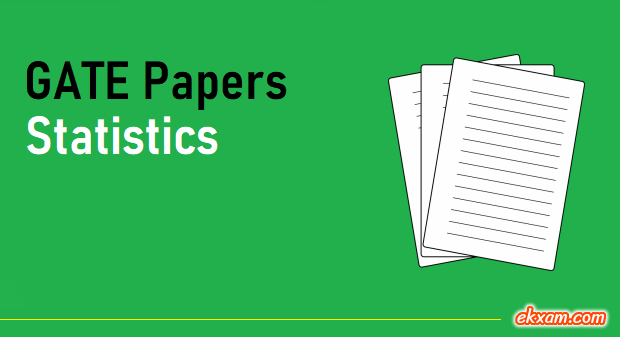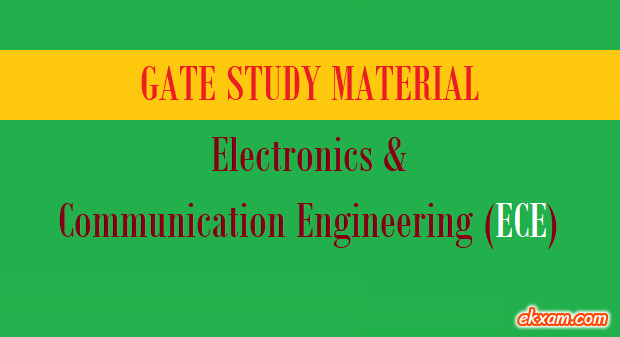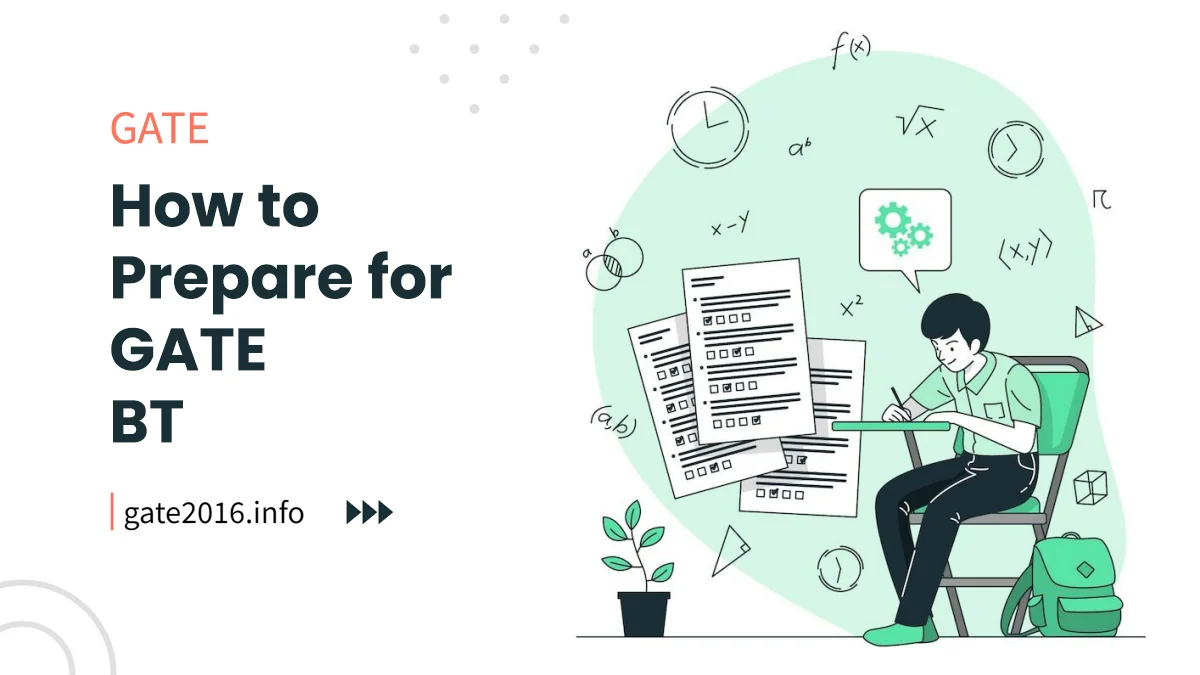Advertisements
Ratings
GATE BM Syllabus 2024– GATE 2025 exam will be conduct by IIT, Roorkee on dates 1, 2 and 8, 9 February, 2025. Here we have provided latest Bio-medical Engineering syllabus & paper pattern for GATE 2024 aspirants.
All candidates with Bio-medical Engineering subject are advised to download this latest syllabus before starting their GATE 2024 exam preparation.
Contents
- GATE 2025 Highlights
- GATE Biomedical Engineering Paper Pattern 2024
- GATE Biomedical Engineering Exam Pattern Details 2024
- GATE Biomedical Engineering Syllabus 2024 PDF
- GATE Biomedical Engineering Syllabus for Core Subjects 2024
- GATE Biomedical Engineering Guidance
- GATE Biomedical Engineering Syllabus & Exam Pattern FAQs
- Related Links
- GATE Total Information & Guidance
GATE 2025 Highlights
| GATE 2025 Conducting Body | IIT, Roorkee |
| GATE 2025 Exam Date | 1, 2, 8, 9 February, 2025 |
| GATE 2025 Total Subjects | 30 |
| GATE 2025 Exam Mode | ONLINE Computer Based Test (CBT) |
| GATE 2025 Exam Duration | 3 hours (180 minutes) |
| GATE 2025 Total Questions | 10 (GA) + 55 (subject)= 65 |
| GATE 2025 Total Marks | 100 |
| GATE 2025 Question Type | MCQ, MSQ, NAT |
GATE Biomedical Engineering Paper Pattern 2024
| Paper Sections | Marks Distribution |
|---|---|
| Subject Questions | 72% of the total marks. |
| Engineering Mathemetics | 13% of the total marks. |
| General Aptitude | 15% of the total marks. |
GATE Biomedical Engineering Exam Pattern Details 2024
| Particulars | Details |
|---|---|
| Mode of Examination | Computer-Based Examination |
| Duration | 3 Hours (180 Minutes) |
| Types of Questions |
|
| Total Number of Questions | 65 Questions |
| Total Marks | 100 Marks |
| Sections |
|
| General Aptitude Section |
|
| Marking Scheme |
|
GATE Biomedical Engineering Syllabus 2024 PDF
| General Aptitude Syllabus (Common to all papers) [pdf] | Download |
| GATE Syllabus for Bio-medical Engineering (BM) [pdf] | Download |
GATE Biomedical Engineering Syllabus for Core Subjects 2024
| Topics | Subtopics |
|---|---|
| EngineeringMathematics |
|
| Electrical Circuits | Voltage and current sources – independent, dependent, ideal and practical; v-i relationships of resistor, inductor and capacitor; transient analysis of RLC circuits with dc excitation; Kirchoff’s laws, superposition, Thevenin, Norton, maximum power transfer and reciprocity theorems; Peak, average and rms values of ac quantities; apparent, active and reactive powers; phasor analysis, impedance and admittance; series and parallel resonance, realization of basic filters with R, L and C elements, Bode plot |
| Signals and Systems | Continuous and Discrete Signal and Systems – Periodic, a periodic and impulse signals; Sampling theorem; Laplace and Fourier transforms; impulse response of systems; transfer function, frequency response of first and second order linear time invariant systems, convolution, correlation. Discrete time systems – impulse response, frequency response, DFT, Z – transform; basics of IIR and FIR filter |
| Analog and Digital Electronics | Basic characteristics and applications of diode, BJT and MOSFET; Characteristics and applications of operational amplifiers – difference amplifier, adder, subtractor, integrator, differentiator, instrumentation amplifier, buffer, filters and waveform generators. Number systems, Boolean algebra; combinational logic circuits – arithmetic circuits, comparators, Schmitt trigger, encoder/decoder, MUX/DEMUX, multi-vibrators; Sequential circuits – latches and flip flops, state diagrams, shift registers and counters; Principles of ADC and DAC; Microprocessor- architecture, interfacing memory and input- output devices |
| Measurements and Control Systems | SI units, systematic and random errors in measurement, expression of uncertainty -accuracy and precision index, propagation of errors; PMMC, MI and dynamometer type instruments; dc potentiometer; bridges for measurement of R, L and C, Q-meter. Basics of control system – transfer function |
| Sensors and Bioinstrumentation | Sensors – resistive, capacitive, inductive, piezoelectric, Hall effect, electro chemical, optical; Sensor signal conditioning circuits; application of LASER in sensing and therapy. Origin of bio potentials and their measurement techniques – ECG, EEG, EMG, ERG, EOG, GSR, PCG, Principles of measuring blood pressure, body temperature, volume and flow in arteries, veins and tissues, respiratory measurements and cardiac output measurement. Operating principle of medical equipment-sphygmomanometer, ventilator, cardiac pacemaker, defibrillator, pulse oximeter, hemodialyzer Electrical Isolation (optical and electrical) and Safety of Biomedical Instruments |
| Human Anatomy and Physiology | Basics of cell, types of tissues and organ systems; Homeostasis; Basics of organ systems – musculoskeletal, respiratory, circulatory, excretory, endocrine, nervous, gastro-intestinal and reproductive |
| Medical Imaging Systems | Basic physics, Instrumentation and image formation techniques in medical imaging modalities such as X-Ray, Computed Tomography, Single Photon Emission Computed Tomography, Positron Emission Tomography, Magnetic Resonance Imaging, Ultrasound |
| Biomechanics | Kinematics of muscles and joints – free-body diagrams and equilibrium, forces and stresses in joints, biomechanical analysis of joints, Gait analysis; Hard Tissues – Definition of Stress and Strain, Deformation Mechanics, structure and mechanical properties of bone – cortical and cancellous bones; Soft Tissues – Structure, functions, material properties, Viscoelastic Properties, Maxwell & Voight Models Biofluid mechanics – Flow properties of blood in the intact human cardiovascular system |
| Biomaterials | Basic properties of biomaterials – Metallic, Ceramic, Polymeric and Composite; Fundamental characteristics of implants – biocompatibility, bioactivity, and biodegradability; Basics of drug delivery; Basics of tissue engineering. Biomaterial characterization techniques – Rheology, Atomic Force Microscopy, Electron Microscopy, Transmission Electron Microscopy Fourier Transform Infrared Spectroscopy |
GATE Biomedical Engineering Guidance
- How to Prepare for GATE Bio-Medical Engineering: A Comprehensive Guide
- GATE BM Syllabus 2025: Biomedical Engineering
- GATE BM Previous Year Solved Papers – (2023-2020)
GATE Biomedical Engineering Syllabus & Exam Pattern FAQs
The GATE Biomedical Engineering syllabus covers various topics related to biomedical engineering. It includes subjects such as Anatomy and Physiology, Biomedical Instrumentation, Medical Imaging Systems, Biomaterials, Biomechanics, Signal Processing, Control Systems, and more. The detailed syllabus can be found on the official GATE website or on GATE2016.info. While there are no specific books recommended by GATE2016.info, there are several books available in the market that cover the topics mentioned in the syllabus. Some popular reference books for Biomedical Engineering include 'Biomedical Instrumentation: Technology and Applications' by R.S. Khandpur, 'Introduction to Biomedical Engineering' by John Enderle et al., and 'Medical Instrumentation: Application and Design' by John G. Webster. The GATE Biomedical Engineering exam consists of a total of 65 questions. These questions are a mix of multiple-choice questions (MCQs) and numerical answer type (NAT) questions. The exam is conducted for a total of 100 marks. The GATE Biomedical Engineering paper follows the same exam pattern as other GATE papers. The exam duration is 3 hours, and it consists of two types of questions: Multiple Choice Questions (MCQs) and Numerical Answer Type (NAT) questions. MCQs have four choices, out of which only one is correct, while NAT questions require candidates to enter a numerical value as the answer using a virtual keyboard. Yes, negative marking is applicable for MCQs in the GATE Biomedical Engineering exam. For each incorrect answer in MCQs, 1/3rd of the marks allotted to the question will be deducted as a penalty. However, there is no negative marking for incorrect answers in NAT questions. No, candidates are not allowed to carry any physical calculator inside the exam hall. However, a virtual calculator will be provided on the computer screen during the exam for calculations. Effective preparation for the GATE Biomedical Engineering exam requires a thorough understanding of the syllabus, regular practice with previous years' question papers, and the use of standard reference books. Creating a study schedule, taking mock tests, and revising important concepts are also crucial for success. Additionally, staying updated with current developments in the field of biomedical engineering is recommended. While GATE2016.info does not endorse any specific coaching institutes or online platforms, there are several coaching institutes and online platforms that offer GATE preparation courses for Biomedical Engineering. It is advisable to research and choose a reputable coaching institute or online platform based on reviews, recommendations, and their track record. Solving previous years' question papers is highly recommended for the GATE Biomedical Engineering exam. It helps candidates familiarize themselves with the exam pattern, understand the types of questions asked, and assess their preparation level. It also aids in time management and improves problem-solving skills. Yes, qualifying in the GATE Biomedical Engineering exam opens up various opportunities for higher studies and career advancements. It can lead to admissions in prestigious postgraduate programs in Biomedical Engineering, as well as opportunities in research and development, healthcare industry, medical device companies, government organizations, and academia.What is the syllabus for the GATE Biomedical Engineering (BM) exam?
Are there any specific books recommended for GATE Biomedical Engineering preparation?
How many questions are asked in the GATE Biomedical Engineering exam?
What is the exam pattern for the GATE Biomedical Engineering paper?
Are there any negative marks for wrong answers in the GATE Biomedical Engineering exam?
Can I use a calculator during the GATE Biomedical Engineering exam?
Are there any specific tips for effective preparation for the GATE Biomedical Engineering exam?
Are there any specific GATE coaching institutes or online platforms recommended for Biomedical Engineering preparation?
Is it necessary to solve previous years' question papers for the GATE Biomedical Engineering exam?
Can GATE Biomedical Engineering be a suitable choice for higher studies or career opportunities?
Recent Posts
- AAI Through GATE 2024 – JE (Junior Executive)
- M Tech and MS Programs Through GATE and GRE: Navigating Postgraduate Options
- Job Opportunities After GATE 2024 in India: What You Didn’t Know!
- BSPHCL Through GATE 2024 – 40 AEE
Related Tags
gate biomedical engineering syllabus pdf 2025, Gate biomedical engineering syllabus & exam pattern pdf download 2025, Gate biomedical engineering syllabus & exam pattern pdf 2025, Gate biomedical engineering syllabus & exam pattern 2025, gate biomedical engineering syllabus pdf download 2025, gate biomedical engineering syllabus pdf download 2025, gate biomedical engineering question paper 2025, gate biomedical engineering question paper 2025
Related Links
| GATE (Reasoning & Aptitude & Maths) Books |
| GATE Guide Books |
GATE Total Information & Guidance
Click below given links to get further information.







